COMMUNICATION STUDIES: DIGITAL MEDIA IN EUROPE
The main advantages of this programme:
BECOME AN EXPERT IN EUROPEAN MEDIA
The Master of Communication Studies is a one-year academic master with a focus on Digital Media in Europe. This unique English language programme focuses on the rapidly changing field of media and communication in a European context. The programme takes an original interdisciplinary approach and allows students to concentrate on business, policy and/or user aspects of digital media.
The VUB also offers a second Master option in Communication Studies with a focus on Journalism and Media in Europe.
AT THE HEART OF EUROPE
This Master of Communication Studies gives you the unique opportunity to study in an environment with all European institutions right at hand. The European Union plays a crucial role in media and communication policies. It has tried to foster a single European market in media and services. Through several large programmes, it has stimulated innovation and the emergence of a European Information Society. The European Commission’s current Digital Agenda for Europe sets the framework for the coming years. In this master programme, you will gain an understanding of European policy and policymaking in the fields of media, innovation and the internet.
A quick campus tour
AN OPEN, INTERNATIONAL AND DIVERSE UNIVERSITY
Vrije Universiteit Brussel (VUB) is a dynamic and modern university with almost two centuries of history. VUB has 15.000 students, 21% of which are international students from more than 120 different countries. Being a student at VUB means learning in an international and open atmosphere of tolerance and diversity that will help you to grow into an independent and critical-thinking individual.
VUB offers high quality English-taught programmes, supported by outstanding research. VUB is known for treating its students as individuals. Professors and teaching assistants are available and open to answer questions from students. Interactive methods ensure close interaction and contribute to students growing into independent and critical individuals.
THE ACADEMIC RHYTHM
First semester
All new students start mid-September with a series of daytime classes over the course of 13 weeks. The first semester ends in the third week of December (winter break). The first exam session (1st semester courses) is organized in January.
Second semester
The second semester starts in the second half of February and consists of 8 weeks of class, followed by spring break, and then another 5 weeks of class. The exam session (2nd semester courses) is organized at the end of May and in June.
Resit exams
organized from mid-August till mid-September. This second chance exam is included in your enrollment and we expect you to attend this exam if you've failed a first exam session (no failed result is transferred to second session).
PROGRAMME OUTLINE
The Master of Communication Studies (60 ECTS credits) consists of three modules:
- Compulsory Courses (24 ECTS credits)
- Compulsory Electives (12 ECTS credtis)
- Elective Courses (24 ECTS credits)
Students coming from the Dutch Bachelor 'Communicatiewetenschappen' at VUB need to change 'Critical Issues in Digital Economics' in 'European Media Markets'. They should contact the learning path counsellor: studypath.es@vub.be.
Due to the course load and a daytime course schedule, a combination with full-time employment is not possible.
COMPULSORY COURSES (24 ECTS)
6 ECTS - Semester 1 & 2
In this prestigious lecture series, organized by Professor Luciano Morganti, invited guest speakers from the European Commission, companies such as Discovery Communications, Google and Politico, civil society, etc. share their newest insights on economic, political, technical, legal and societal aspects of new media and society in Europe. They fiercely criticize the new data protection rules of the European Commission, defend emerging platform regulation or completely destroy it, and talk passionately about the diversity of European cultures, etc. In all of this being challenged by a body of highly critical students.
18 ECTS - Semester 1 & 2
The Master Thesis in Communciation Studies is the work by which you complete the master’s programme. With the Master Thesis the student demonstrates analytical and synthetic skills or an independent problem-solving capacity on an academic level. The work reflects the general critical-reflective mindset or the research mentality of the student.
The Master Thesis treats a topic that is related to one of the subareas that are addressed within the master’s programme Communication Studies.
The master's thesis, variant pre-doctoral track, is a piece of work that completes the master's program. By carrying out the ‘pre-doctoral track’ as a master's thesis the student demonstrates analytical and synthesis abilities, as well as an independent problem-solving ability at an academic level. The “Master thesis: Pre-doctoral track” is a track for motivated students with high research-potential and interested in doing a PhD in the future. Excellent and motivated students (see admission criteria) can opt for this course, instead of the ‘classic’ master thesis course.
COMPULSORY ELECTIVES
There are 3 compulsory electives. Students take 2 of them (12 ECTS credits).
6 ECTS - Semester 1
This course explores, on the basis of lectures by Professor Tim Raats and group discussions, the policies that impact Europe’s media and communications sectors. How do both national and European policies contribute or fail to contribute to quality of media, diversity, trust, freedom of expression, etc.? How are minors protected against hate speech? How are platforms held to account for harmful content? Topics elaborated on include policies on public service media, the film and creative industries, video-sharing platforms, fake news, illegal content, competition among super-platforms, etc.
6 ECTS - Semester 1
What is the impact of technology on media and society? And what is the impact of society on technology? These are the key questions that this course will focus on. Students will be taking a look at seminal work of researchers such as Innis, McLuhan, Bell, Perez, Castells, Couldry, Zuboff, etc. Together with Professor Leo Van Audenhove, students critically engage with this topic, discussing on the existence of an information society or knowledge economy, the dangers of surveillance, the global village that has emerged from digital convergence, etc.
6 ECTS - Semester 1
In case you want to know more about the business and economics of new media, this course, lectured by Professor Pieter Ballon, will be the highlight of your year. Topics such as innovation and diversity in media, advertising, competition and bottlenecks in new media markets, future networks for new media and net neutrality are part of this course that prepares students to go into strategy departments of media companies, management and interest groups.
ELECTIVE COURSES
Students choose up to 24 ECTS from the elective courses.
12 ECTS - 1 or 2nd semester
The fundamental goal of the traineeship programme in the International Master 'Digital Media in Europe' is to have practical training and acquire practical skills. Concretely, the internship programme aims for students
- to operationalize and test, in a professional environment, the theoretical knowledge obtained in following the Master;
- to develop professional skills and competences in light of future jobs / career (incl. networking);
- to critically (self-)reflect on both the institutional environment and company/organization, as well as on personal development (knowledge-building, skills, strengths and weaknesses, ...) during the traineeship.
The traineeship can be completed in the first or second semester. There are two types of traineeships: research traineeships or professional traineeships. Especially for a professional traineeship, students can search for and propose a traineeship to the traineeship coordinator who needs to approve the position proposed by the student.
6 ECTS - 2nd semester - by Karl Verstrynge
The course basically deals with the applied ethical domain of business ethics, departing from the question to what extent business ethics can live up to the fundamental ethical questions. After having dealt with traditional ethical movements and their relevance for business ethics, some specific themes come to the fore (bureaucracy, capitalism, globalism...). Besides traditional ethicists (Aristotle, Kant, Bentham, Levinas) other auhtors are treated that have special relevance for business ethics such as Bauman, Solomon, Bowie, MacIntyre, Sloterdijk...
6 ECTS - 2nd semester - by Marken Komorowski
This course contributes to the in-depth knowledge, understanding and insight within the field of communication sciences and in relation to the latest evolutions and discussions at both the national and international level regarding media, internet and globalization. You will act upon an open attitude in a culturally diverse international context. You critically reflect on your own (geographical, social, cultural, local, personal, …) position.
Specific aims are:
At the level of reproduction and understanding of the course materials:
- The characteristics media markets in Europe
- The structure of different media markets (for product, Member State level)
- How digitization disrupts media markets and what role data driven strategies play.
At the level of application and analysis:
- The student can apply the course materials to recent media market trends.
- The student can see the relations between different parts of the course, among others through identifying the differences and similarities between different media products and geographical markets and explain these.
- The student can analyze and see the impact of data on media market strategies.
At the level of evaluation and creation:
- The student can engage in the research of a topical issue, relate this to course materials, and write a succinct non-scientific assignment on it. The group assignment should be descriptive, analytical and evaluative in nature.
- The student can argue for or against a certain viewpoint throughout his/her assignment and can defend this point in a structured, well-argued manner during class
6 ECTS - 1st semester - by Trisha Meyer
In 1996 John Barlow wrote his famous Declaration of Independence of Cyberspace. The Internet would not be governed by governments or the industry, it would be governed by the Internet Community itself. That ideal seems a far way of now. Critical internet resources are managed by ICANN, but it’s legitimacy is still being challenged. Governments do regulate and control the internet in different fields. More authoritarian countries actively censor the Internet. This course introduces students to Internet Governance. It focuses on the international debates on Internet Governance. It gives an overview of governments practices of controlling and regulating the internet. It discusses central themes such as human rights and the internet, censorship and repression, the democratic potential of the Internet, copyright and infringement, etc.
6 ECTS - 1st semester - by Leo Van Audenhove
A classic definition of media literacy is the one constructed at the National Leadership Conference on Media Literacy in 1993: 'Media Literacy is the ability to access, analyze, evaluate, and communicate messages in a variety of forms'. Media literacy is a booming topic in our fast changing digital media environment. At least, at the rhetorical level it is said to be of utmost importance that all people are media literate. The media literacy field is a highly diverse field. In a review of the field in 2013 Potter identifies 23 different definitions of media literacy. Although all theories on media literacy pay attention to a certain level of critical understanding towards media and news content, digitalization of media and the fast innovation in the field have turned attention to levels of access to digital media, to the strengthening of technical skills to deal with computers, tablets and smart phones and the applications running on them. In this course we focus on 1) the theoretical discussions on media literacy, 2) policies on media literacy in selected European countries, at the level of the EU and UNESCO, 3) concrete projects on media literacy in Flanders and Europe.
6 ECTS - 2nd semester - by Jan Loisen
This course aims to introduce and discuss in-depth the wide variety of approaches within the field of Media, Culture and Globalisation Theories.
It sets out from a critical discussion on Globalization, via questions such as how has the concept and field of globalization developed historically?; Is globalization new?; What have been turning points in globalization’s development and in the globalization of media and culture; Are these developments positive / negative and for whom?
In each of the following classes key authors and seminal theoretical texts in the field of media, culture and globalization are explained, discussed and evaluated. In addition, the theoretical content is applied or illustrated via concrete cases.
6 ECTS - 1st semester - by Jo Pierson
The course takes an interdisciplinary road trip at the role and meaning of data and privacy in mediated communication, online platforms and society, from a social, economic, technological and regulatory perspective. We discuss central theories, research, terminology, current issues, and future challenges on big data, privacy, ethics, literacy and user empowerment in different fields of society, from the perspective of Media and Communication Studies and STS (Science & Technology Studies). For this we incorporate three inextricable and mutually determining components: artefacts, practices and social arrangements. More in particular the lectures take an in-depth look at national and international developments in social media, sharing economy applications and data technologies (e.g. Facebook, Google, Snapchat, Uber, Internet-of-Things, Smart Cities, health apps,…). We apply the knowledge in concrete and interactive class exercises. This is coupled with practical interventions with scientists, government, public organisations (eg Belgian Privacy Commission), companies, civil society organisations, artists and other stakeholders.
6 ECTS - 2nd semester - by Luciano Morganti
The course focuses on the European Public Sphere (EPS) and the EU Information and Communication policy and analyses their evolution, development and setbacks in the context of the EU multilevel governance structure.
The course is divided into 5 main conceptual units:
The European Union Decision Making Process and Participatory Mechanisms – After a short introduction to the raison d’être of the EU, in this part the supranational and intergovernmental dimension of the EU will be put into perspective with the different decision making mechanisms of the EU (EU policy modes). Theories of EU Integration will be discussed in relation to the European Pubic Sphere and the EU Information and Communication Policy.
The European Public Sphere – In this part of the course the European Public Sphere will be put into context and theoretical aspects of the Public Sphere and the European Public Sphere will be confronted with the reality of its implementation in the European Multilevel governance structure. Issues of multiple European identities and cultures, different ideas of citizenship, different democratic systems, different models of participation, the complex relationship between media and political systems will be discussed.
The European Media landscape – will take into consideration the evolving European Media landscape. The issue of European Media VS Europeanisation of Media will be discussed. This unit will also propose a critical analysis of the history, development, role and importance of European Media in the context of the EPS and European integration.
The European Union Information and Communication policy – will considered the birth, development and evolution of the European Information and communication policy and its declinations in policy papers, actions and programmes. The challenges of communicating and informing about the EU in the EU will be discussed. Specific cases studies will be used to illustrate successes and failures of the EU institutional approach to information and communication.
Main current debates and critical issues for the European Public Sphere – The last module of the course (which will be articulated along the course) will be dedicated to debate critical aspects and issues for the European Public sphere and Citizens’ participation. The topics debated will be related to current policy priorities and developments, relevant political issues and developments, EU integration issues, and EU current debates. Possible topics might be: the European approach to disinformation and fake news, Brexit, a critical analysis of the EU consultation mechanisms, the European Citizens Initiative, the role of European Political Parties and the relationship between the European Parliament and the national ones, the growing role and importance of populist parties in the EU integration process.
6 ECTS - Semester 2
This course focuses on the interplay between changes and design of digital media and technologies on the one hand and transitions in the way consumers and citizens in Europe adopt and use digital media in their everyday life on the other hand. In other words: Professor Jo Pierson explains how people use digital media, what differences there are in terms of usage between for example young and old people, and how new technologies shape user behavior. A highly topical course that sheds light on the digital behavior of all people and not only the, at times, atypical behavior of the student audience itself.
6 ECTS - Semester 2
Climate change, economic inequality, war, migration, and the COVID-19 pandemic are only a few of the challenges faced today by countries and communities all over the world. These global problems require local initiatives, institutions and policy makers to look for smarter ways to formulate and implement public policy and interventions.
In a digital world, data is often available that can help to do this, but is not understood, shared, or operationalized properly. New approaches to deal with open data are needed to address these issues in a socially responsible way.
This hands-on course will outline the opportunities ‘hidden’ in existing data, will discuss critically the limitations and risks, and will provide concrete examples of data-driven societal change. Using accessible and easy-to-replicate forms of data analytics, data visualization and data re-use, it will allow students through practical exercises to advance to a first level of ‘data stewardship’.
6 ECTS - Semester 2 - by Pieter Ballon
The first unicorn company in Belgium started only a few years ago as a VUB-spin-off. It is a prominent example of a new type of digital, data-driven startups that can grow very fast and operate on a global level.
Examples like these show that understanding and being successful in digital media and internet services requires new skills of entrepreneurship and innovation management. How to come up with data-driven innovation ideas? How to assess opportunities and potential impacts? How to make sure these inventions reach the market? How to set up and manage digital businesses?
The course is based on academic literature as well as on current, real-life case studies and inspiring testimonials of successful ventures and innovations in Europe, the US and Asia. You will gain in-depth knowledge of what is happening in digital markets today, and what is driving digital inventions and innovations.
Academic and language requirements
Learn more about the admissions criteriaTRAINEESHIP OPTIONS
The traineeship is offered as an elective. The fundamental goal is to have practical training and acquire practical skills. The traineeship programme aims for students to operationalize and test, in a professional environment, the theoretical knowledge obtained in following the Master. This allows them to develop professional skills and competences while networking; all with their future career in mind. It also spurs our students to critically (self-) reflect on both the institutional environment and company/organization, as well as on personal development (knowledge-building, skills, strengths and weaknesses, ...) during the traineeship.
At VUB, the Career Center bundles all traineeship options for each "branche", to keep an overview. In Brussels, these options seem to be endless!
LEARNING OUTCOMES
Learning outcomes describe the intended knowledge and understanding, skills and attitudes that you must master after completing your studies. Do you want to know more about the specific learning outcomes of this programme? Click here for more information.
meet your professors
The master is organized by the Department of Communication Studies. All our professors are academic experts in their field, and they draw on own research in their courses. They are linked to one of three research centers: SMIT (Studies on Media, Information and Telecommunication), CEMESO (Studies on Media and Culture) or DESIRE (Centre for the study of Democracy, Signification and Resistance).
Meet the core team of professors in the master.
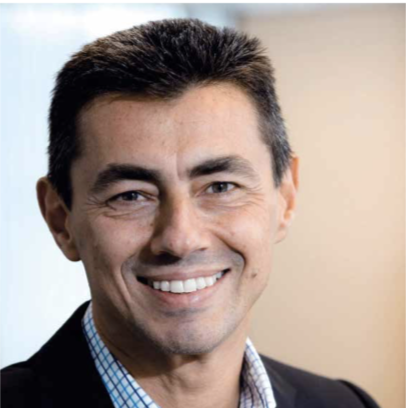
Luciano Morganti
Luciano Morganti is the Director of this master and is professor at the VUB Communication Department and Senior Researcher and Project Coordinator at SMIT. His work focuses on the interaction between (new) communication technologies and democratic processes, with particular attention to the concept, idea and practice of the European Public Sphere. More in details, his research is currently dedicated to social, political and communicational aspects of citizens’ participation, citizens empowerment and participatory democracy in the context of EU multilevel governance integration process. Besides that he is passionate about the ongoing discussion concerning the governance and innovation of European media.
He is visiting professor in many different universities in the EU and outside the EU. He is currently the Project Coordinator of Stars4Media.eu.
Prof. Morganti coordinates the Brussels Talking Lecture Series Course and teaches the European Public Sphere course. He is the coordinator of the Master theses and the coordinator of the traineeship programme for the Journalism and Media in Europe Master.
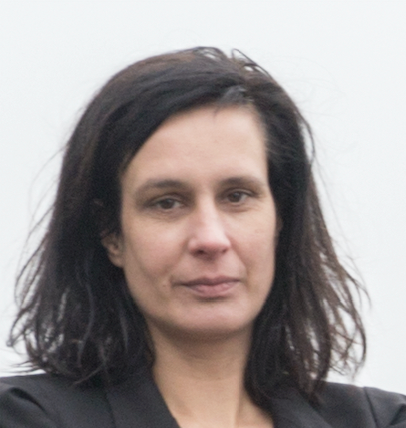
Laurence Claeys
Prof.dr. Laurence Claeys lectures on innovations processes and the role of technological and scientific inventions to drive societal innovations and on digital research methods. In her research she looks into how empowerment and emancipation can be built into technologies during the design and development processes. She closely follows up on innovative trends in technology, society and methodology. Her interest in innovation is wider than the academic world as she co-founded the Internet-of-Things company Sensolus (www.sensolus.com) where she has taken up the role of product manager.
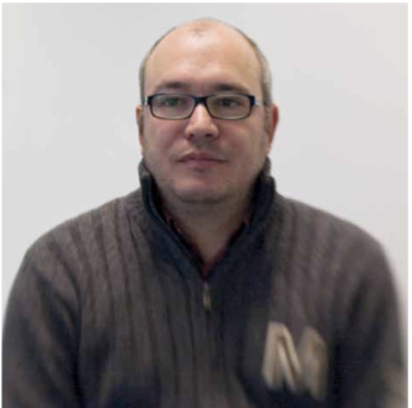
Leo Van Audenhove
Leo Van Audenhove is head of the Department of Media and Communication Studies at Vrije Universiteit Brussel. He is a researcher at iMEC-SMIT. He is extra-ordinary professor at the University of the Western Cape. In 2013, he was vital in setting up the Knowledge Centre for Digital and Media Literacy in Flanders, of which he subsequently became the director. The centre was established by government as an independent center to promote digital and media literacy in Flanders. His research focuses on media and data literacy, e-inclusion and digital participation, internet governance and ICT4D.
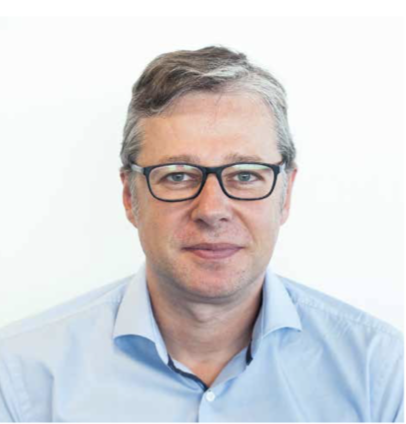
Pieter Ballon
Pieter Ballon is Associate Professor in Communication Sciences at the Vrije Universiteit Brussel, Belgium. He is the Director of research centre iMEC-SMIT at VUB, as well as Scientific Director Living Labs at iMEC, the internationally leading research institute for nanotechnology and digital innovation. He specialises in platform competition and business model innovation in the domains of media and smart cities. Pieter Ballon is scientific co-director of the Data & Society knowledge center, and the Hannah Arendt Institute. He is also holder of the academic Chair on Smart Cities at the Vrije Universiteit Brussel. Pieter holds a PhD in Communication Sciences, and an MA in Modern History. Previously, he was senior consultant and team leader at TNO in the Netherlands.
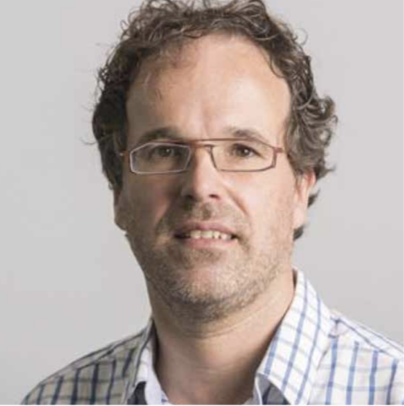
Jo Pierson
Jo Pierson is Professor in the Department of Media and Communication Studies at the Vrije Universiteit Brussel and Principal Investigator at the research centre SMIT. In this position, he is in charge of the research unit ‘Data, Privacy & Empowerment’, in close cooperation with iMEC. He holds the VUB Chair in ‘Data Protection on the Ground’ and is also affiliated with Hasselt University and University of Amsterdam. His key management positions within the VUB are Vice-Chair of University Education Council, Chair of Faculty Education Council, and Academic Secretary for Faculty Bureau of the Social Sciences & Solvay Business School. His main research expertise is in digital platforms, algorithms, data privacy and user innovation. Since 2016 he is part of the Scholarly Review Committee of the International Association for Media and Communication Research (IAMCR).
Admissions criteria
You should meet both the academic and the language requirements to be found eligible to start this programme.
ACADEMIC REQUIREMENTS
DIRECT ACCESS
Candidates with a Flemish ‘Bachelor of Science in Communicatiewetenschappen' (VUB or other) degree or with a VUB Bachelor of Social Sciences degree have direct access to the programme.
ADMISSION AFTER SCREENING OF YOUR ACADEMIC RECORD
All other applications are evaluated individually by an Admission Board. Factors taking into account by the Admission Board include:
- English language proficiency (see below for minimal criteria)
- Academic degree(s) already acquired in a relevant study field
- Grades scored in previous studies (upload all higher educational transcripts of records)
- Quality of motivation letter, including the fit between your motivation and what we offer
- Other relevant experience
STUDY BACKGROUND
The programme is primarily aimed at students with an academic bachelor or master degree, preferably in the field of Social Sciences (Political Science, Sociology, Communication Studies, or related) or Economic Sciences (Applied Economics, Business, Management) with more than average results. Admission is dependent on selection. Students from other relevant fields (such as computer sciences, engineering, languages) can also apply, but need to motivate extensively why they consider this program a fit with their future ambitions and background.
PREPARATORY PROGRAMME
Depending on the content of your previous studies, the Board can assign a short and individual preparatory programme to the candidate. This preparatory programme can be combined with the Master programme and typically consists of one or two extra courses to be taken during the master year. You can not only apply for the preparatory programme if you're not found eligible to join the master.
LANGUAGE REQUIREMENTS
Good English language skills are an important prerequisite for successfully following the master. There are three ways to prove your proficiency:
Option A: send us one of the following language certificates proving your CEFR B2 level:
- TOEFL (only the internet-based test is accepted): minimum level: 79
- IELTS: minimum level academic module 6.5
- Cambridge English: Minimum scale grade 170 (equivalent to the CEFR B2)
- ITACE: minimum grade B2
Due to the COVID-19 pandemic, we are aware that students may face difficulties to take a test in person. Please note that we also accept the TOEFL IBT Special Home Edition and the IELTS Indicator. These are variants of the classic TOEFL and IELTS tests that you may take at home.
Please note that language test results cannot be older than 5 years at the moment of application.
Option B: having successfully completed secondary or higher education with English as language of instruction:
- submit official proof of the language of instruction of your previous study
Option C: having successfully completed Belgian secondary education:
- submit official proof that you completed a study in the Belgian educational system
Application deadlines
Submit your application, including all required documents, before the deadline!
APPLICATION SEASON FOR 2022- 2023 IS OPEN
Apply today to start in September 2022Academic and language requirements
Learn more about the admissions criteriaAlumni Testimonials
Our alumni from all over the world share their experiences in the Communication Studies: Digital Media in Europe master with you.
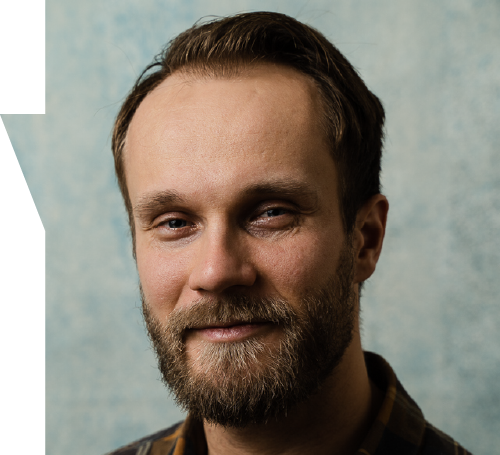 Jaakko Karhu
Class of 2019-2020
Jaakko Karhu
Class of 2019-2020
“You are surrounded by scholars and experts who understand the real fabric of information society, media business and related policy-making inside out."
"Stay open for the introduced perspectives and absorb the knowledge, and I can guarantee your thinking will change. At the same time, do not forget one of the most important assets that will stick with you after you graduate: an international network. Get to know your peers.
Being a student that's a bit older and having work experience in two different fields, technology and communications, I found that the NMSE programme bound my knowledge together perfectly, complementing it with a deep understanding of society and policy-making. As a result, my professional background got solidified, and I gained a new direction and vision for my career. I can only thank NMSE and the professors of the programme for their contagious enthusiasm and world-class teaching for inspiring me to stay curious and helping me to get to this fascinating point in my life.”
Jakko is currently professionally active as communication, new media and technology expert.
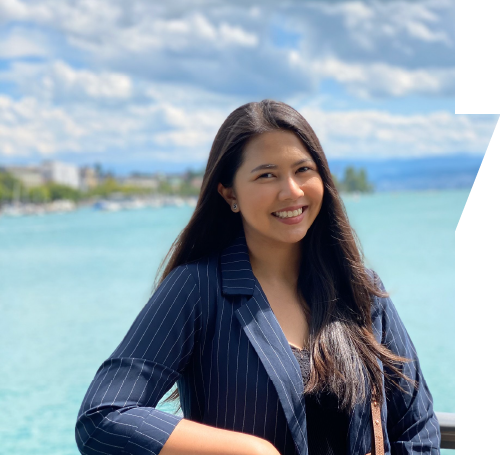 Nadya Nandita
Class of 2019-2020
Nadya Nandita
Class of 2019-2020
"This program allowed me to understand European media, the policies, and challenges deeply."
“I completed the NMSE programme in 2020, and studying at VUB was the best decision I ever made. This program allowed me to gain a deep understanding of the European media, policies, and challenges. I took the traineeship opportunity, which also gave me the experience of working abroad. Studying at VUB, I was surrounded by people from all over the world. You will get numerous opportunities to broaden your network by joining extracurricular activities or to become a member of the organization both inside or outside the university. Overall, It felt like my second home!”
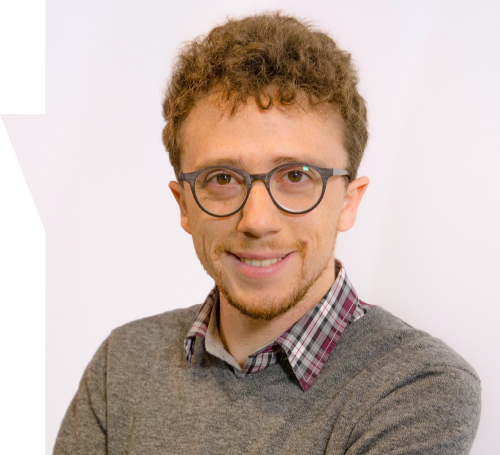 Giordano Zambelli
Class of 2019-2020
Giordano Zambelli
Class of 2019-2020
"It has been intellectually enriching and professionally strategic."
"Applying and completing this Master's programme was an extremely valuable opportunity for me. First of all, coming from academic studies in Philosophy and having work experience in communication, I was able to connect theoretical, operational as well as policy-related aspects of media into a coherent and comprehensive framework. It has been intellectually enriching and professionally strategic. In fact, right after the Master I started a traineeship at the European Commission, which was followed by the opportunity for me to work in academia, on the topic I studied the most during the programme."
Giordano is currently active as a PhD student at the VUB department of Communication Studies.
Careercenter
THE VUB HELPS YOU TO MAKE YOUR FIRST STEP IN THE JOB MARKET WITH WORKSHOPS, NETWORKING EVENTS, JOB FAIRS, TIPS ‘N TRICKS FOR JOB INTERVIEWS. ALL AN AMBITIOUS STUDENT NEEDS!
First step in the market
Phd?
IF YOU WANT TO CONTINUE YOUR ACADEMIC CAREER, YOU CAN APPLY FOR A PHD POSITION AT THE VRIJE UNIVERSITEIT BRUSSEL. ALL YOU NEED IS A PROMOTER, RESEARCH SUBJECT AND SUFFICIENT FUNDING. ARE YOU UP FOR THIS CHALLENGE?
More info





